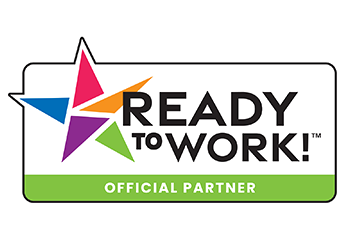Early Childhood Studies
 |
 |
One or more of these programs are approved Ready to Work programs. Find out if you’re eligible to receive free tuition and job placement services that will enable you to secure an in-demand career. |
What is the Early Childhood Studies program?This two-year degree program prepares you for a career as an early childhood educator working with young children and their families. What will I learn?You’ll learn about child learning and development from birth through age 8. You’ll understand developmentally effective approaches with young children and learn how to effectively observe and assess students. You will also learn how to stay current in early childhood education research and to be an advocate for children in the home, the workplace, the community and at the national level. In addition, students will have multiple opportunities to observe and practice in at least two of three early childhood age groups (birth - 3, 3-5, 5-8). What can I do with this course of study?TThis program will prepare you to transfer to a four-year university to continue your ECE studies or to enter the workforce in a teaching position in many different settings, such as childcare centers, preschools and elementary schools. Other possibilities include working with families in in-home settings. |
What's special about this program?The Early Childhood Studies Associate Degree Program at San Antonio College is accredited by the Commission on the Accreditation of Early Childhood Higher Education Programs of the National Association for the Education of Young Children, www.naeyc.org. SAC’s Early Childhood Center is the first early childhood center in San Antonio accredited by the NAEYC. The center provides childcare services on campus for SAC students, faculty and the community and also serves as a training laboratory for ECS students.
|
- Early Childhood Studies, A.A.S.
- Early Childhood Studies, Level II Certificate
- Early Childhood Administration Enhanced Skills Certificate
The ECS program substitutes the Child Development Associate (CDA) credential for TECA 1318 and CDEC 1380. The student must provide a copy of the CDA to the Early Childhood Studies program for course substitution.
The San Antonio College Early Childhood Studies program mission is to prepare early childhood educators, provide quality educational experiences, advocate for children and families, and collaborate with the community we serve.
Developmentally appropriate practice is at the core of our program. First and foremost, students are taught to always consider the child’s age, individual interests, abilities, and cultural background. We prepare students with a strong knowledge base in growth and development along with the understanding of how young children learn. Diversity, in all forms, is appreciated and welcomed in our program. Each child and student are appreciated for their unique qualities. In support of the research, play is valued as an important part of childhood and recognized as the way children strengthen development in all domains. Acknowledging the importance of accountability, the state standards for early childhood are utilized to plan meaningful curriculum and playful learning experiences. We educate our students not only what to teach, but how to teach.
Hands-on experience is an important part of our curriculum. Our AAS degree plan requires two field experiences and three practicums working with children in order for students to connect theory with practice. The field experiences expose students to how specific course information is implemented in the field. Our practicums involve applying course knowledge and practicing teaching and guidance strategies as they work directly with young children. We have two early childhood settings on-campus, our early childhood center, which is accredited by NAEYC and an Early Head Start program. Students can learn under the guidance of early childhood educators who model intentional teaching and best practice. Students receive individual feedback from faculty members after scheduled observations. These experiences prepare students to teach in a variety of early childhood settings. Working students may use their center for their lab setting. Our classes are designed to foster a community of learners through many active learning opportunities such as group projects, case studies, role-playing, and class presentations.
We recognize the importance of teacher and family relationships. When working with young children, early childhood educators collaborate with their families, respect their role in development of their children, and involve them as partners in decision making. The three R’s, being respectful, reciprocal, and responsive are applied to children, as well as families to support meaningful, nurturing relationships. Students are challenged to create an antibias approach to working with children and families. Class activities and field experiences engage students in understanding the rich diversity of our community.
Professionalism is interwoven throughout the program. The NAEYC Code of Ethics is explored throughout our courses. Faculty provide all students equitable learning opportunities so they may be successful, including course deliveries designed to meet the adult learners’ needs. Faculty model professionalism by being engaged in the community and profession, at the local, state and national level. We are committed to advocating for quality early childhood programs, engaging in community initiatives, serving on boards, and providing training in the ECE community. Students are also encouraged to be active participants in the early childhood field. The Early Childhood Studies student club involves students in on-campus events, as well as community-wide events such as conferences, advocacy events and professional organization experiences.
The program is guided by the NAEYC Accreditation of Early Childhood Higher Education Programs Standards which have been adopted as our program learning outcomes (Advancing the Early Childhood Profession, NAEYC Standards and Guidelines for Professional Development, NAEYC, 2012). Also directing our program are the Professional Standards and Competencies for Early Childhood Educators, The Unifying Framework for the Early Childhood Education Profession, and Advancing Equity in Early Childhood Education.
It is our utmost goal that graduates embrace the profession with a disposition of joy in learning and teaching. We want students to be passionate about working with young children and their families. We stress the importance of being life-long learners as new research findings and practices evolve in our field.
The Early Childhood Studies program operates within the context of San Antonio College’s mission and values.
Mission:
To empower our community for success by meeting the postsecondary learning needs of all San Antonio College Students through equitable educational practices for diverse populations in a globally networked society. To help students achieve their full potential by preparing them to graduate, transfer, or enter the workforce with effective critical thinking skills, communication proficiency, leadership ability, personal and civic responsibility, empirical and quantitative understanding, performance proficiency, and the ability to work effectively in teams.
Values:
- Students First
- Respect for All
- Collaboration
- Community Engaged
- Can Do Spirit
- Data-Informed
Revised July 2023
Outcome Measure #1: The Number of Program Completers
- Academic Year: 2022 - 2023
- Number of program completers: 18
- % of program completers who were attending full-time (at the time of completion): 0%
- % of program completers who were attending part-time (at the time of completion): 100%
- Academic Year: 2021 - 2022
- Number of program completers: 21
- % of program completers who were attending full-time (at the time of completion): 14.3%
- % of program completers who were attending part-time (at the time of completion): 85.7%
- Academic Year: 2020 - 2021
- Number of program completers: 15
- % of program completers who were attending full-time (at the time of completion): 26.7%
- % of program completers who were attending part-time (at the time of completion): 73.3%
Outcome Measure #2: The Program Completion Rate
Published timeframe for full-time students to complete the early childhood program: Two years (4 semesters).
- Academic year in which a Fall cohort of full-time candidates enrolled in the program (select three sequential years): Fall 2019
- Percentage of those candidates who completed the program within 150% of the published timeframe: 25%
- Percentage of those candidates who completed the program within 100%, 200% (twice), or 300% (three times) of the published timeframe: 25.0%
- Academic year in which a Fall cohort of full-time candidates enrolled in the program (select three sequential years): Fall 2018
- Percentage of those candidates who completed the program within 150% of the published timeframe: 14.8%
- Percentage of those candidates who completed the program within 100%, 200% (twice), or 300% (three times) of the published timeframe: 18.5%
- Academic year in which a Fall cohort of full-time candidates enrolled in the program (select three sequential years): Fall 2017
- Percentage of those candidates who completed the program within 150% of the published timeframe: 0%
- Percentage of those candidates who completed the program within 100%, 200% (twice), or 300% (three times) of the published timeframe: 9.0%
Outcome Measure #3: Institutional Selected Data
The fall-to-fall retention rate in the program for each of the three most recently completed academic years.
- Academic Year: 2023 (Fall 2022)
- % of Part-Time Candidates Enrolled in the Program (% of Total Enrollment): 76.9%
- Retention Rate among Part-Time Candidates: 48.7%
- % of Full-Time Candidates Enrolled in the Program (% of Total Enrollment): 23.1%
- Retention Rate among Full-Time Candidates: 52.9%
- Academic Year: 2022 (Fall 2021)
- % of Part-Time Candidates Enrolled in the Program (% of Total Enrollment): 78%
- Retention Rate among Part-Time Candidates: 36.9%
- % of Full-Time Candidates Enrolled in the Program (% of Total Enrollment): 22%
- Retention Rate among Full-Time Candidates: 31.1%
- Academic Year: 2021 (Fall 2020)
- % of Part-Time Candidates Enrolled in the Program (% of Total Enrollment): 74.5%
- Retention Rate among Part-Time Candidates: 37.9%
- % of Full-Time Candidates Enrolled in the Program (% of Total Enrollment): 25.5%
- Retention Rate among Full-Time Candidates: 37.5%
Fall 21 Data (Based on Key Assessments)
Standard 1 Promoting Child Development and Learning
1a. Knowing and understanding young children’s characteristics and needs, from birth through age 8.
83% of students met or exceeded the expectations
1b. Knowing and understanding the multiple influences on early development and learning.
83% of students met or exceeded the expectations
1c. Using developmental knowledge to create healthy, respectful, supportive, and challenging learning environments for young children.
100% of students met or exceeded the expectations
Standard 2 Building Family and Community Relationships
2a. Knowing about and understanding diverse family and community characteristics.
100% of students met or exceeded the expectations
2b. Supporting and engaging families and communities through respectful, reciprocal relationships.
100% of students met or exceeded the expectations
2c. Involving families and communities in their children’s development and learning.
100% of students met or exceeded the expectations
Standard 3 Observing, Documenting, and Assessing to Support Young Children and Families
3a. Understanding the goals, benefits and uses of assessment-including its use in development of appropriate goals, curriculum, and teaching strategies for young children.
100% of students met or exceeded the expectations
3b. Knowing about and using observation, documentation and other appropriate assessment tools and approaches, including the use of technology in documentation, assessment and data collection.
90% of students met or exceeded the expectations
3c. Understanding and practicing responsible assessment to promote positive outcomes for each child, including the use of assistive technology for children with disabilities.
88% of students met or exceeded the expectations
3d. Knowing about assessment partnerships with families and professional colleagues to build effective learning environments.
100% of students met or exceeded the expectations
Standard 4 Using Developmentally Effective Approaches
4a. Understanding positive relationships and supportive interactions as the foundation of their work with young children.
100% of students met or exceeded the expectations
4b. Knowing and understanding effective strategies and tools for early education, including appropriate uses of technology.
88% of students met or exceeded the expectations
4c. Using a broad repertoire of developmentally appropriate teaching/learning approaches.
100% of students met or exceeded the expectations
4d. Reflecting on own practice to promote positive outcomes for each child.
100% of students met or exceeded the expectations
Standard 5 Using Content Knowledge to Build Meaningful Curriculum Spring 21 Data (course is only taught in spring)
5a. Understanding content knowledge and resources in academic disciplines: language and literacy; the arts-music, creative movement, dance, drama, visual arts; mathematics; science, physical activity, physical education, health and safety; and social studies.
88% of students met or exceeded the expectations
5b. Knowing and using the central concepts, inquiry tools, and structures of content areas or academic disciplines.
100% of students met or exceeded the expectations
5c. Using own knowledge, appropriate early learning standards, and other resources to design, implement, and evaluate developmentally meaningful and challenging curriculum for each child.
100% of students met or exceeded the expectations
Standard 6 Becoming a Professional
6a. Identifying and involving oneself with the early childhood field.
100% of students met or exceeded the expectations
6b. Knowing about and upholding ethical standards and other early childhood professional guidelines.
100% of students met or exceeded the expectations
6c. Engaging in continuous, collaborative learning to inform practice; using technology effectively with young children, with peers, and as a professional resource.
100% of students met or exceeded the expectations
6d. Integrating knowledgeable, reflective and critical perspectives on early education.
100% of students met or exceeded the expectations
6e. Engaging in informed advocacy for young children and the early childhood profession.
100% of students met or exceeded the expectations
To graduate with an A.A.S. in ECS, all 6 key assessments need to be completed at San Antonio College. This is one of our accreditation requirements. If you have taken courses at other colleges and have transferred the credit to SAC, you will still need to take the key assessment for that particular course during the capstone course. The Key Assessment Courses are:
- CDEC 1381 or CDEC 1194/2287
- CDEC 1195/2288 (Capstone)
- CDEC 1313
- TECA 1354
- TECA 1303
|
If you have a CDA, the ECS program substitutes the Child Development Associate Credential (CDA) for the following two courses.
Please submit a scanned copy of your CDA to the program coordinator at tsinclair@alamo.edu. |
We offer credit for CDEC 1356 Emergent Literacy with a Children’s Learning Institute Texas School Ready Certificate. |
T.E.A.C.H. Early Childhood® Texas is a comprehensive scholarship model designed to retain early childhood professionals through increasing their education and compensation. Our scholarships utilize a cost-sharing model that creates a partnership between the scholarship recipient, their employer, and T.E.A.C.H. Early Childhood® Texas. With more robust scholarship models and expanded eligibility, earning your credential or degree is more possible than ever!
Eligibility Criteria:
- High school diploma or GED
- Earn less than $20 per hour
- Employed at least 30 hrs/week at a licensed child care center OR licensed or registered family child care home
CDA Assessment Fee Scholarships provide:
- 95% of CDA Assessment Fee
- $200 award for earning CDA credential
- $250 award for remaining employed for 6 months
Associate and Bachelor Scholarships provide:
- 90% of tuition and books
- $200/semester travel stipend
- Release time to attend class and study
- $350-$500 award for completing academic year
- $500-$1,000 award for remaining employed for 12 to 18 months
Benefits for Employers:
- Release time reimbursed at $22/hour
- Staff recruitment and retention too
- Aligns with Texas Rising Star Criteria
2. San Antonio Area Foundation
-
Lisa Coronado
Chair
(210) 486-1094
lcoronado41@alamo.eduTerri Sinclair
Associate Professor/Program Coordinator
(210) 486-0521
tsinclair@alamo.eduAna DeHoyos O'Connor
Professor/Community Liaison
(210) 486-0509
aoconnor9@alamo.eduAnn Coldwater
Assistant Professor/CCAMPIS Grant Program Manager
(210) 486-0508
acoldwater@alamo.edu -
Bea Canales
Academic Unit Assistant
(210) 486-0526
bcanales1@alamo.edu -
Rebekah Barnes
rschwarz@alamo.eduClaudia Castillo
cnaranjo4@alamo.eduTaisha Luckey
tluckey1@alamo.eduMandy Pelletier
mpelletier3@alamo.eduKimberly Villarreal
klezama@alamo.edu
For information about SAC's Early Childhood Center, visit

